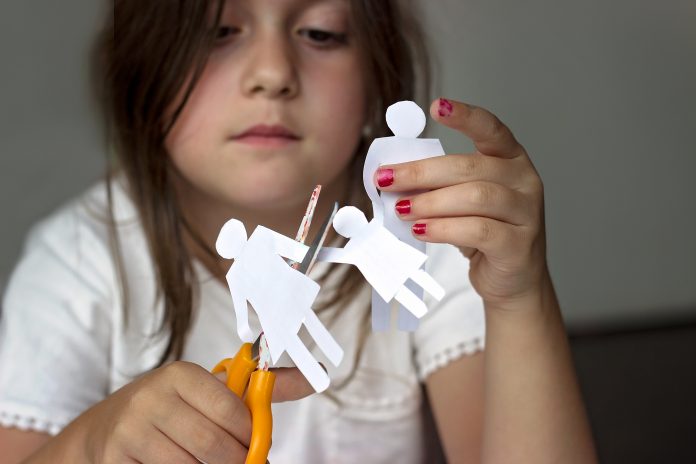This article takes a look at the mental health implications for children who are caught up in the middle of a marital breakdown. We will also analyse what you, as a parent, can do to help them
Despite the fact the number of divorces in England and Wales is as low as it has been since 1973, it is still a prominent talking point in the media. Nobody enters into a marriage hoping it breaks down, however, as tragic as it is, failure is sometimes unavoidable. Alongside the obvious effects divorce has on the two partners, there are often more than two parties involved in a marriage. Consider the children: children can often suffer harsher impacts than their parents.
Of course, not all divorce proceedings replicate a Hollywood movie plot. But, more often than not, they can be a turbulent period, with intense arguments and stark unhappiness.
For a child of any age, being subject to extended periods of time within this environment can be incredibly troubling.
Change
Regardless of a child’s age, the considerable levels of change that are going to occur within their lives is going to have significant effects. For a younger child progressing through their developmental years, having one parent moving out of the house can be confusing.
At this young age, it is unclear as to ‘why mum or dad is no longer around all the time anymore’, and ‘when we go to do something, why are mum and dad not doing it together, with me?’.
There is research to suggest that an older child can come to terms with divorce easier than minors. Despite this, they are the most likely to bear the brunt of the effect of change. The breakdown of a marriage could mean them moving to a new house, moving school, or no longer seeing one of their parents. It could also mean the family is less well-off financially.
This can have a substantial impact on a child’s life, and their mental health. For example, in the past, your child may have been able to go away on a school trip each year with their friends, whether it be skiing or a pre-summer break.
Now, due to the fact that two mortgages are being paid, there is simply not enough money to foot the bill for the vast majority of ‘wants’ in life. This will irritate and upset a child who has grown accustomed to such a lifestyle.
Behaviour
One of the major issues when considering children and family law solicitors becoming involved is the lack of understanding. A failure to understand a situation can develop into frustration, and in many cases, this can result in anger.
Often, with one parent absent, the consistent level of discipline that was once there has now been removed. Rather than dishing out punishment for bad behaviour, try to understand the position in which the child finds themselves.
Remember, they are currently going through a rollercoaster of emotions. Therefore, be patient and take into consideration the way you are acting around them.
Children absorb everything that takes place around them. So, if one parent is badmouthing another, they are likely to pick up on this and replicate it. Although the situation between both co-parents may be rather toxic, for the sake of the child’s emotional stability, communication is key. Monitoring behaviour around both parents, particularly if they are now living in different homes, is an effective way to quash any behavioural issues.
Education
It should come as no surprise that the completion of a stable education will act as a good basis for a child in regard to their mental health. Research has discovered that children who grow up in a two-parent, married family are more likely to do better at school.
They are more likely to be less disruptive in class and less aggressive towards other classmates. In terms of their academic performance, children whose parents’ marriage is intact are more likely to do their work without being forced.
A research study, meanwhile, drawn upon by the BBC in 2014 found that 65% of children whose parents had divorced performed worse than expected in their GCSE results, while 44 per cent also insinuated they believe their A-Level results had suffered.
Resolution, who conducted the research, proposed that the disruption of moving school could be at fault for the exam results.
In most cases, parents staying together is better for the children. However, ‘staying together for the kids’, isn’t always the best thing to do. Parents who are living together in an unhappy relationship, purely to appease their children, will begin acting in a way that can result in damaging effects. Ultimately, children will develop an idea of what it means to be a husband or wife and take that into later life. Do what is right for you, but don’t fail to consider those caught in the crossfire.
Sources
https://www.ourfamilywizard.co.uk/blog/behavioural-issues-children-after-divorce
https://www.verywellfamily.com/psychological-effects-of-divorce-on-kids-4140170
https://www.parents.com/parenting/relationships/should-i-stay-in-my-marriage-for-the-kids/











